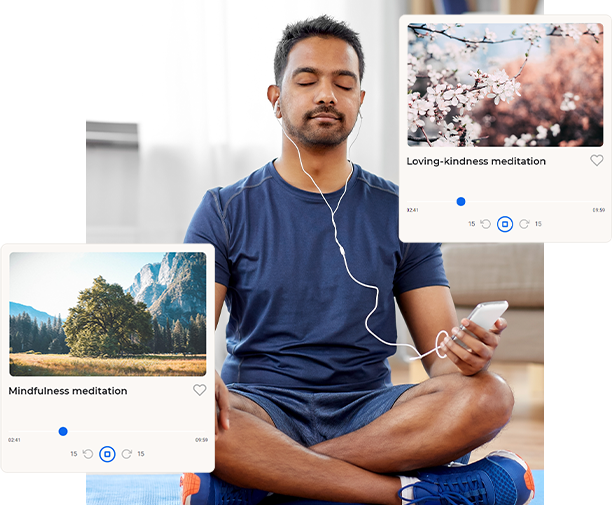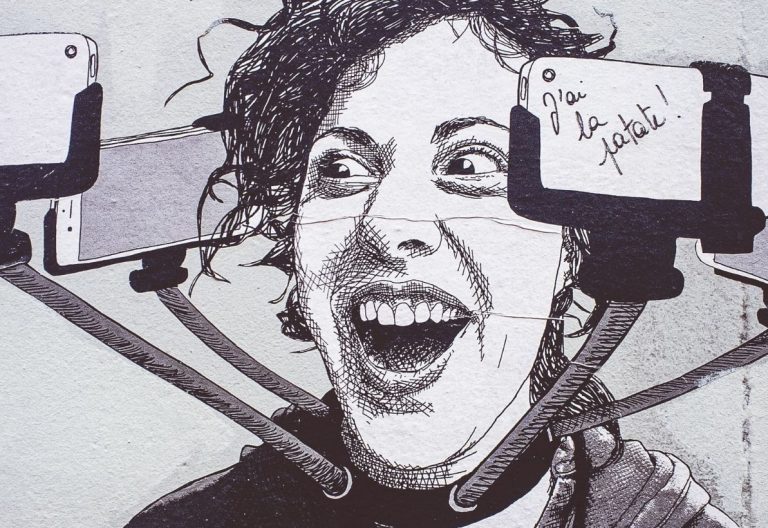No one likes to be invisible to others. Although going unnoticed can sometimes be great, it’s one thing to go unnoticed when you choose to and quite another to appear invisible to others when you’re trying to stand out. There’s nothing worse than being somewhere and feeling like no one notices you. Feeling invisible can be quite an unpleasant experience, especially when you have something important to say. It’s not as simple as not getting enough attention; it’s more like being completely disregarded. The problem with feeling invisible is that it leaves us out of meaningful conversations that we really should be part of. In this article, we’ll examine what it’s like to be feeling invisible and share tactics on how to be seen and heard.
I forgot you were here
“I forgot you were here” can be a phrase that burns in your mind when you hear it. The claim of being forgotten about being doesn’t make a person suddenly change, be loud, and make their presence known.
People who feel invisible have good reasons for feeling this way. Perhaps this makes you feel like you must pull out armor again to protect yourself from negative feelings. Just because you don’t want to be the center of attention doesn’t mean that a bit of attention can’t be nice for you. It is nice to feel that your presence is felt and that people like having you around. It’s not nice to think that people wouldn’t care if you weren’t there.

Why do we feel invisible?
Many different factors can cause you to feel invisible. However, the most important of all has to do with a lack of social skills. Social skills are tools we use to relate successfully with others. This requires the right combination of verbal communication (what we say to others) and non-verbal communication (how we communicate it to others through our gestures, tone of speech, or physical distance).
Most often, these skills are developed throughout our childhood, giving rise to adults with adequate social skills who know how to capture the attention of others and share their feelings, opinions, and desires. However, sometimes this learning does not take place for different reasons. This may be due to some personality traits (e.g., being too introverted), traumatic social events (e.g., bullying), scarcity of socially skilled role models, social rejection, or even childhood emotional neglect.
Another primary reason that can cause a person to feel invisible is the repercussions that fear of rejection can have on their behavior. The desire for approval and social desirability are typical for everyone. However, when we suffer from too high a dose of one or the other, it can lead us to employ behaviors that either make others think well of us or make us so unnoticed that others do not even bother to evaluate us. It’s mainly in the latter case that we adopt behaviors that can make us tiptoe through life without making too much noise.
However, this comes at a cost. In the short term, the invisible person is spared the criticism of those who don’t notice them, the medium and long-term consequences devastate their emotional well-being. These include low self-esteem, lack of self-confidence, and negative emotions such as frustration, loneliness, emptiness, and sadness, which will remain in their daily lives and significantly interfere with their daily lives.
Alternatively, your upbringing can have a huge impact in feeling invisible as well. If your parents compared you to your siblings or cousins, you’ll likely notice one of you got more attention than the other. If you were the “golden” child, it’s possible that your parents paid less attention to you. They often had to spend their time disciplining the “bad” child. However, remember that the “bad” child doesn’t get off the mental health hook. They, too, sought an emotional connection and it wasn’t what they really needed.

How to be seen and heard when feeling invisible
When we fail to speak up and actually be listened to, the world will gradually swallow us up in oblivion, relegating us to the background, where we’ll end up frayed until we disappear. And we can’t allow this; sooner or later, we’ll let others speak for us to end up living a life that is not ours. For the sake of your mental health, don’t let someone else dictate your life journey.
1. Self-esteem
Having low self-esteem is a common experience when feeling invisible. When we feel overlooked, our confidence shatters.
But just because someone doesn’t see how wonderful you are or doesn’t notice you doesn’t mean that you don’t matter.
Remember that everyone will connect with different people. While one person might cause you to feel invisible, that doesn’t mean you’re invisible to the world. You’ll still find the people who think you’re amazing, sometimes, they’re just not in your school or workplace. But they’re still out there. And when you meet them you’ll feel so much better about yourself because you’ll stand out in the best way possible.

2. Acceptance
Accepting yourself is hard, but it’s necessary. We all have things about ourselves that we’re not proud about. Whether or not we change those things or accept them, they’re important because those things are part of us.
Accepting this will make you feel invisible less often because you’ll realize the answer to what is wrong with me is nothing. People love you for who you are, don’t let the people around you make you feel like you don’t matter and you won’t feel invisible. You have to step out of your comfort zone to find your magic and stop being afraid. Accept yourself, and everything will change for the better.
If you ever get quiet in a new place, it’s normal, don’t force yourself to do things you don’t want to do. However, if you want to stand out, you have to get out of your own way to discover how capable you are in every way. You’ll realize how others want to spend their time with you because you’re a fantastic person. In this way, and almost without realizing it, you will begin to enjoy your surroundings, the people in your life, and yourself more.
3. Assertiveness
Assertiveness is a communication strategy through which people express their ideas and feelings, while defending their rights. It doesn’t use aggressiveness, nor does it opt for passivity. On the contrary, we have to be aware of knowing how to explain things consciously and clearly, in a direct way, and by expressing our feelings.
When you feel invisible, you need to stand up for yourself assertively. You may feel uncomfortable doing this, as assertiveness is typically associated with narcissistic people. However, in every social circle, when you want to be heard, you’ll learn how to build confidence when you speak up, even if it feels strange in a sense at first.

4. Emotional safety
When you feel invisible, it can feel out of your control. But it’s not. To stop feeling invisible, you’ll need to have your personal needs met. But not all places, situations, or people can help you meet your needs. You need to create a safe space.
Find a small group of people or one other person you can connect with to discuss your feelings and emotions. You don’t want to trauma dump on them as that is a form of mental illness, and friends aren’t therapists. However, you can speak up about some of the things you want to share, such as your feelings of invisibility, your goals or ideas, or any other important matter.
Getting practice in with smaller groups will help build your confidence and body language as you start speaking up in bigger groups. But a safe space is always an important starting point.
5. Work with a therapist
Finding a therapist that you feel comfortable with is so important for your mental health. It can also be the missing piece to help you feel visible. Discussing your feelings of invisibility to a therapist can help you learn if you struggle with social interactions, past trauma, or just need to speak up more in a conversation.
Having someone pay a little attention to what your needs in relationships are can open doors for you. Maybe your family or children have created this reality that make you feel invisible. But people feel invisible for multiple reasons. And a therapist can talk it out with you to help you determine where these feelings are stemming from, so you can move forward.

6. Strengthen relationships
Some people will make you feel invisible. Fortunately, it won’t be everyone. Building relationships isn’t easy, but it’s possible. You can start by strengthening your relationships with family members, children, and eventually your friends.
Strike up a conversation one on one. The reality is some people are better communicating one on one than within in a group. Once you realize which situation you’re a better communicator in, you might spend more time talking in situations that are more within your control.
If you’re an introvert, you’ll probably talk to people one on one. Extroverts may feel more comfortable talking in different environments. Recognize your strengths and build relationships in a way that feels more natural to you.
If you find your voice is louder in a one on one environment, than build multiple relationships with people that way to reduce the invisibility. You’ll find support when you spend time listening to others’ stories and voices too.
You can stop feeling invisible with practice
It’s true that when you have been acting passively for a long time, it’s difficult to spread your wings and move in the world of assertiveness. However, the motivation and determination to improve our situation should be enough to achieve it daily, minute by minute. Every word is essential, every act shapes our life, and we all deserve to be happy. Leave aside your invisibility. Don’t keep your feelings to yourself, don’t be silent about what you think or believe. Defend your rights and your ideas. Only you have the key to stop being invisible. Check out our latest article on feeling anxious for no reason.




